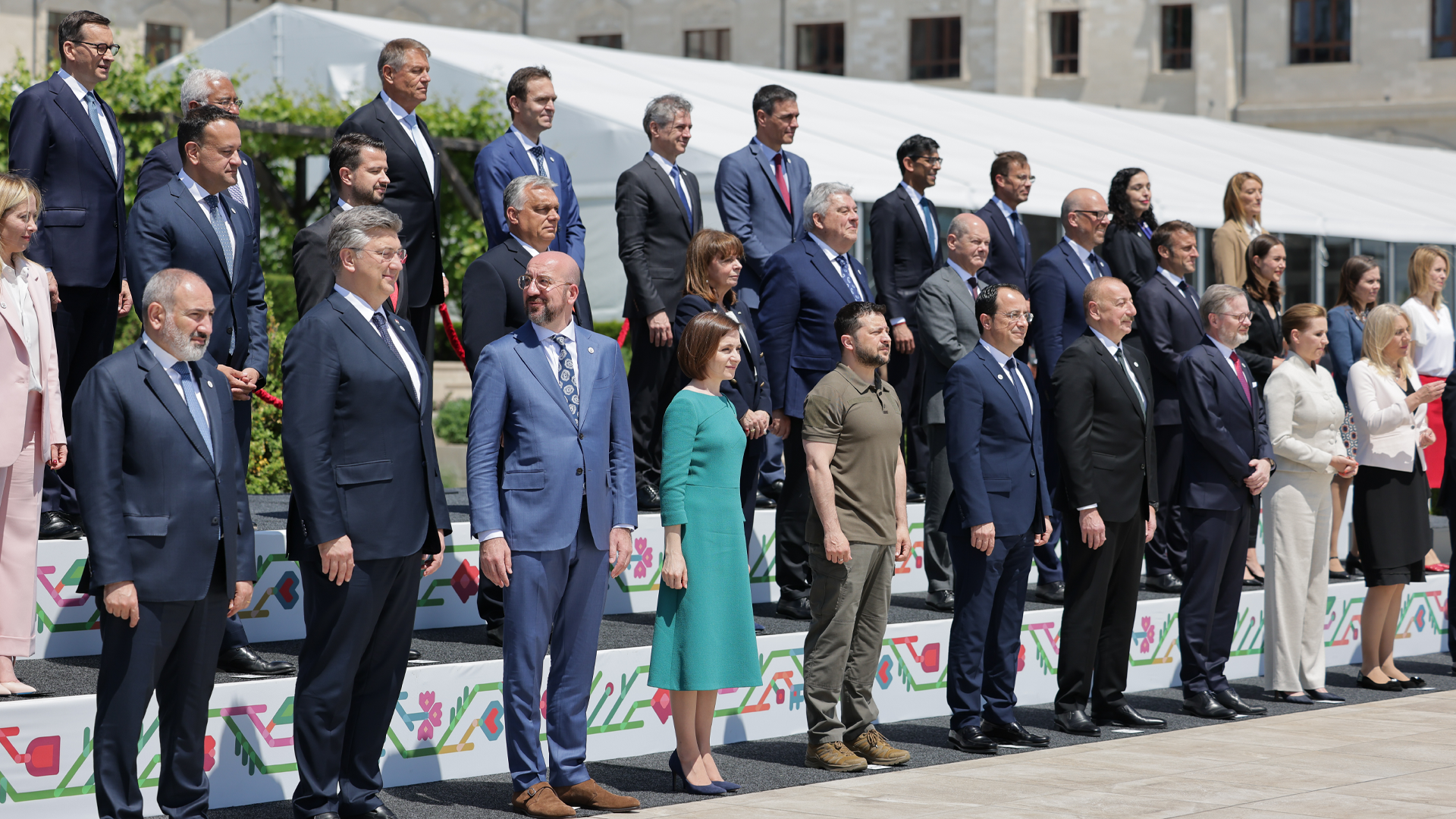Igniting a new era of collaboration and progress, the EPC stands at the forefront of Europe’s transformative journey, fostering unity, resilience, and a shared vision for the continent’s future.
Emmanuel Macron, the President of France, has been at the forefront of advocating for a stronger and more united Europe. Recently, Macron has openly voiced his concerns in regard to NATO, the EU, and Eastern European countries.
In his pursuit of enhancing European integration and addressing pressing challenges, Macron played a significant role in the formation of the European Political Community (EPC).
Recently, Macron has argued that Putin’s invasion of Ukraine has awakened NATO from what he previously called a “brain-dead” state.
He believes that the threat posed by Russia’s aggression has forced NATO countries to reassess their security and take collective action. Additionally, Macron acknowledged the concerns raised by Eastern European countries regarding the threats posed by Russia. He expressed regret for not heeding the warnings issued from Warsaw to Tallinn and pledged France’s support in the future.
Moreover, several European nations aspire to join NATO or the EU, or both, in order to secure economic, political, and security benefits.
However, not all countries meet the eligibility criteria for membership within either organisations, and some actively choose not to pursue it. The EPC seeks to set aside this issue of membership and instead emphasizes the strategic necessity of addressing the interests and challenges of the entire continent as a cohesive entity.
The first summit was held in Prague last October with the leaders of 44 countries in attendance. The main point of conversation was that of the Russia-Ukraine war and the energy crisis.
One notable achievement of the summit was the participation of the United Kingdom, signaling a modest return to continental forums post-Brexit. Furthermore, the summit underscored the difficulties in reconciling realpolitik and European values, as it included the participation of European countries with an ambivalent stance on democratic values.
This year’s summit saw 47 European leaders present all with hopes of furthering its security structures without Russia’s involvement in discussions. The event was seen as a significant step for Moldova in its pursuit of EU membership and a chance to showcase its commitment to European values and reforms as it could also face Russian threats being an ex-Soviet nation.
Before the event, the EU agreed to several benefits for Moldova which includes an agreement between the Union and Moldova to lower roaming tariffs starting from January 1, 2024.
Additionally, the EU will provide increased macro-financial assistance to Moldova, with an additional 600 million euros, bringing the total assistance package to 1.6 billion euros. Moldova will receive an additional 160 million euros to enhance the energy efficiency of residential buildings. Furthermore, 50 million euros will be allocated for the rehabilitation of Moldovan railways, and 40 million euros will support the country’s defense sector.
The summit served the purpose of displaying a united European front against Russia’s influence. Through the summit, there was an emphasis on Russia’s continued aggressions against Ukraine with the European leaders discussing strategy against Putin’s threats.
Lately, there has been an increase in concerns about the declining relations with Russia and the potential for tensions to be exacerbated in the decision-making process of Ukraine’s NATO membership.
Some NATO members fear that Ukraine’s membership could further strain relations with Russia, while others argue that standing firm against Russian aggression is necessary for the alliance’s credibility.
With Ukraine’s President Zelensky’s presence at the summit, it allowed him to engage with NATO leaders and express Ukraine’s desire for closer ties and eventual membership in the alliance.
Zelensky did not fail to highlight the importance of security cooperation between Ukraine and NATO, particularly in addressing the ongoing conflicts and threats in the region, to mitigate Russia’s effects.
Ukraine’s potential NATO membership would have significant strategic implications for the region, as it could shift the balance of power and influence between NATO and Russia in Eastern Europe.




















